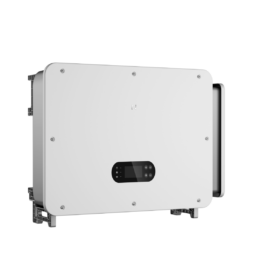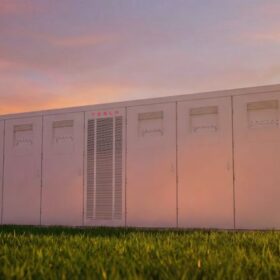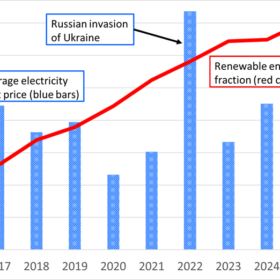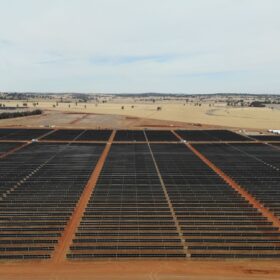Clean Energy Council (CEC) General Manager – Distributed Energy, Con Hristodoulidis, said the commencement of the Commonwealth’s Cheaper Home Batteries Program and Western Australia’s Residential Home Battery Schemes represents a major milestone for Australia’s clean energy future as Aussie’s equip themselves with the tools to slash their family power bills, reduce grid reliance and access significant savings.
“Today is a defining moment in Australia’s clean energy journey. Home batteries are no longer unaffordable – with the new rebates and no-interest loans they are now within reach for everyday Australians, driving energy independence and lowering household costs,” Hristodoulidis said.
“Home batteries allow households to store cheap excess solar power generated during the day for use in the evening, when energy prices are at their peak. It also acts as an emergency backstop during blackouts or can be sold back to the grid, maximising savings and improving energy resilience.”
“This is a win on every level. Energy independence means families can double their bill saving just by connecting a home battery to their rooftop solar; this supports greater renewable energy penetration in the system, reducing the strain on the grid which benefit households with and without solar; and cutting emissions which contributes to a cleaner energy future.”
Clean Energy Council data shows battery installations jumped 50% in the second half of 2024, with more than 45,000 systems installed, as Australians increasingly sought energy autonomy.
“Despite Australia’s world-leading rooftop solar uptake, boasting over four million installations, 96 per cent of these homes still do not have a battery attached to it. That is changing fast. The new battery incentive schemes are designed to break down cost barriers and accelerate widespread adoption,” Hristodoulidis said.
Under the Commonwealth program, households can access a 30% discount on the upfront purchase price for home batteries with a capacity of up to 50 kWh. In WA, the scheme provides rebates of up to $5,000 for Synergy customers and up to $7,500 for Horizon Power customers for battery systems up to 10 kWh, with interest-free loans of up to $10,000 available for eligible households.
“Both schemes have already sparked strong interest from consumers, with SunWiz data showing that battery sales outpacing PV systems for the first time in May 2025. Our industry stands ready to meet this heightened demand to support a successful nation-wide rollout,” Hristodoulidis said.
“There are now over 750 Clean Energy Council-approved battery products available to consumers, a 17% increase in just six months, giving Australians more choice than ever,” he said.
Approved home batteries must meet stringent safety standards and must be listed on the Clean Energy Council’s Approved Products List. WA systems are required to participate in a Virtual Power Plant (VPP) program and the Federal Cheaper Home Batteries program requires batteries to be VPP ready, enabling grid and market services, and ensuring greater system reliability and resilience.
Hristodoulidis said the Clean Energy Council, which represents 1,000 members in the sector, has long advocated for a national battery incentive scheme to help increase access to affordable and reliable power as the missing piece in Australia’s clean energy transition.
“Today it is clear Australia’s love affair with rooftop solar will continue to shine brightly for years to come,” Hristodoulidis said.
“With the right policy, technology, and consumer support, Energy Independence Day marks the commencement of Australia’s home battery revolution. This is not just a milestone, but the next chapter in our nation’s clean energy journey – the next phase in consumers taking control of their energy bills.”
To view the Clean Energy Council’s approved battery products list visit www.cleanenergycouncil.org.au.






By submitting this form you agree to pv magazine using your data for the purposes of publishing your comment.
Your personal data will only be disclosed or otherwise transmitted to third parties for the purposes of spam filtering or if this is necessary for technical maintenance of the website. Any other transfer to third parties will not take place unless this is justified on the basis of applicable data protection regulations or if pv magazine is legally obliged to do so.
You may revoke this consent at any time with effect for the future, in which case your personal data will be deleted immediately. Otherwise, your data will be deleted if pv magazine has processed your request or the purpose of data storage is fulfilled.
Further information on data privacy can be found in our Data Protection Policy.